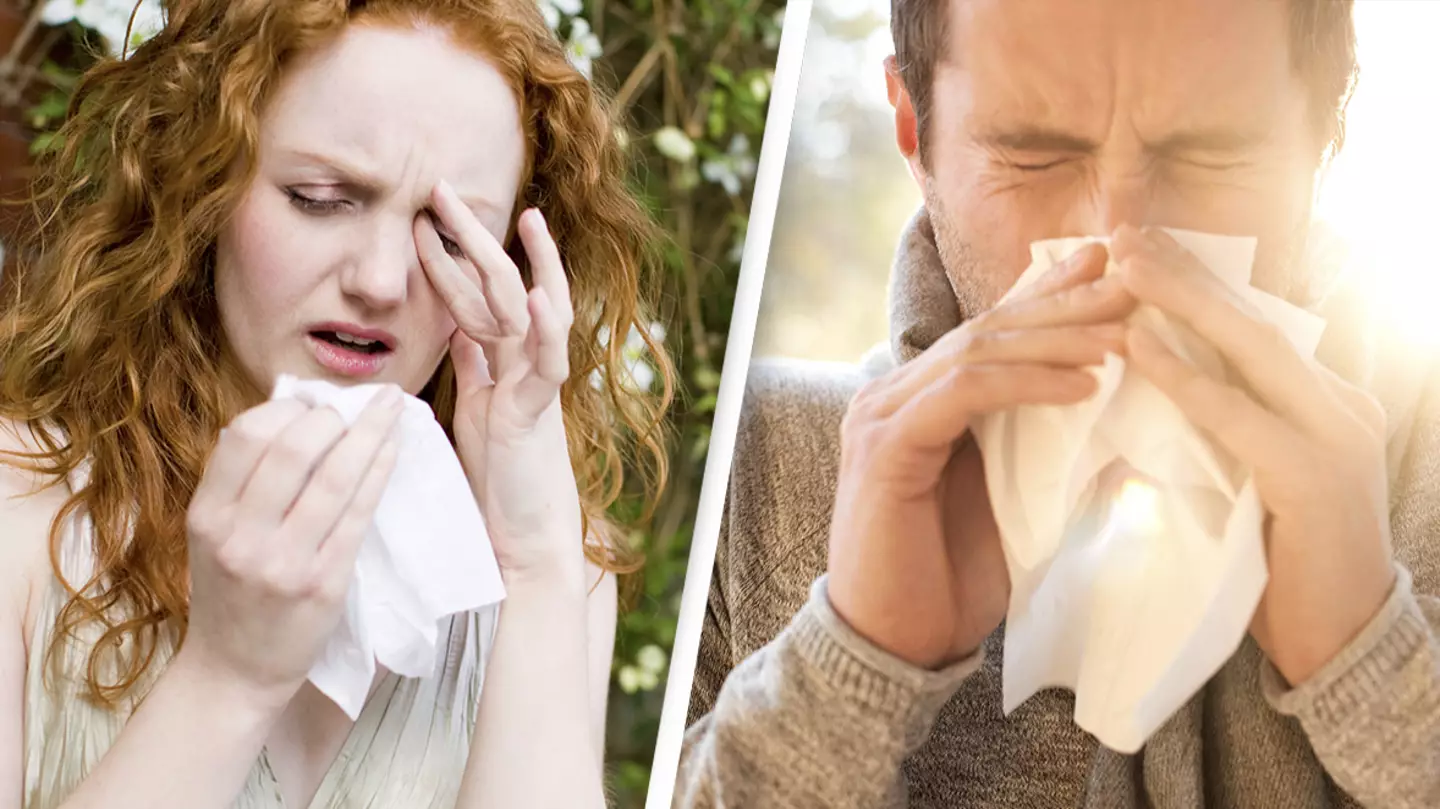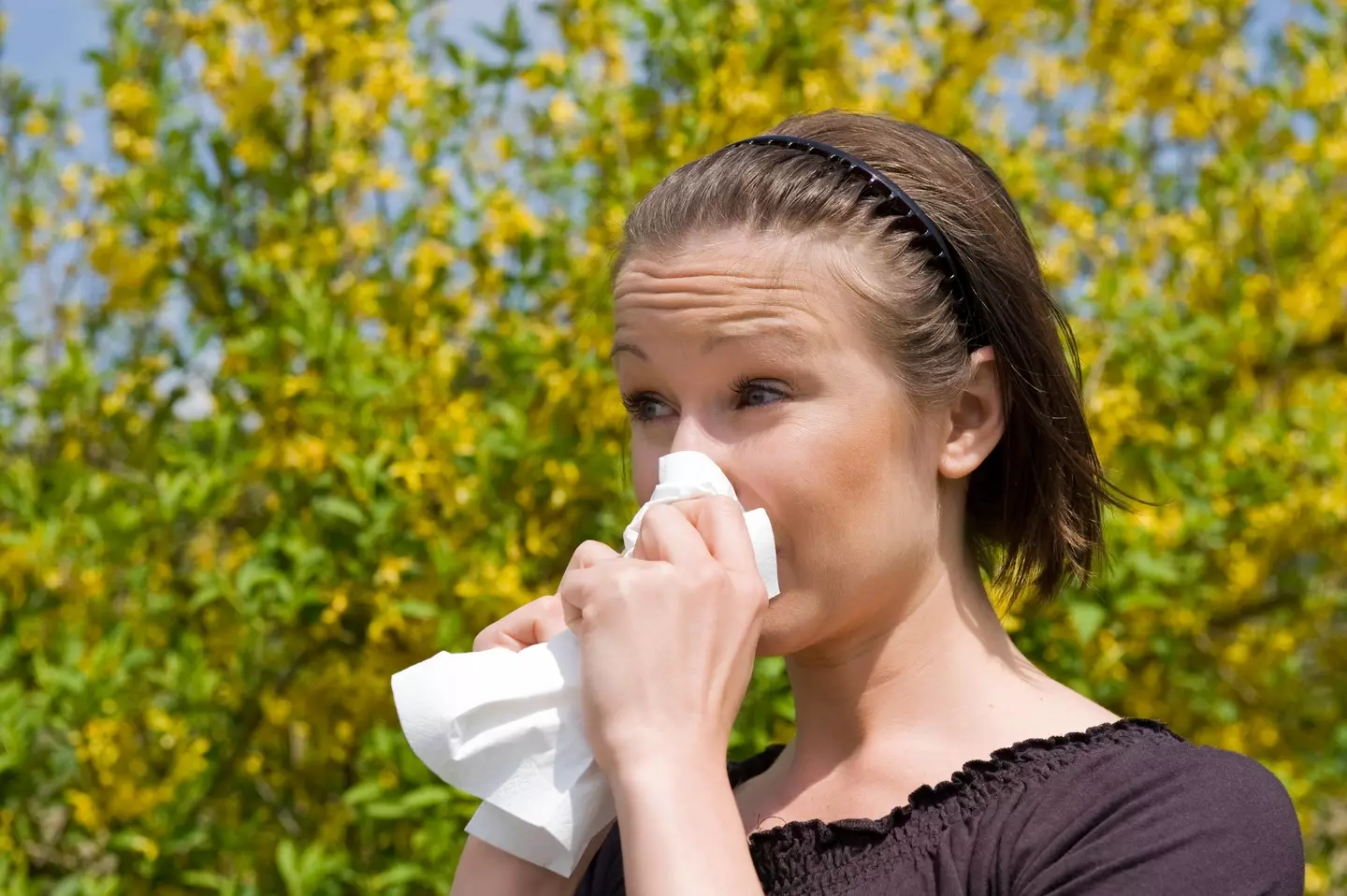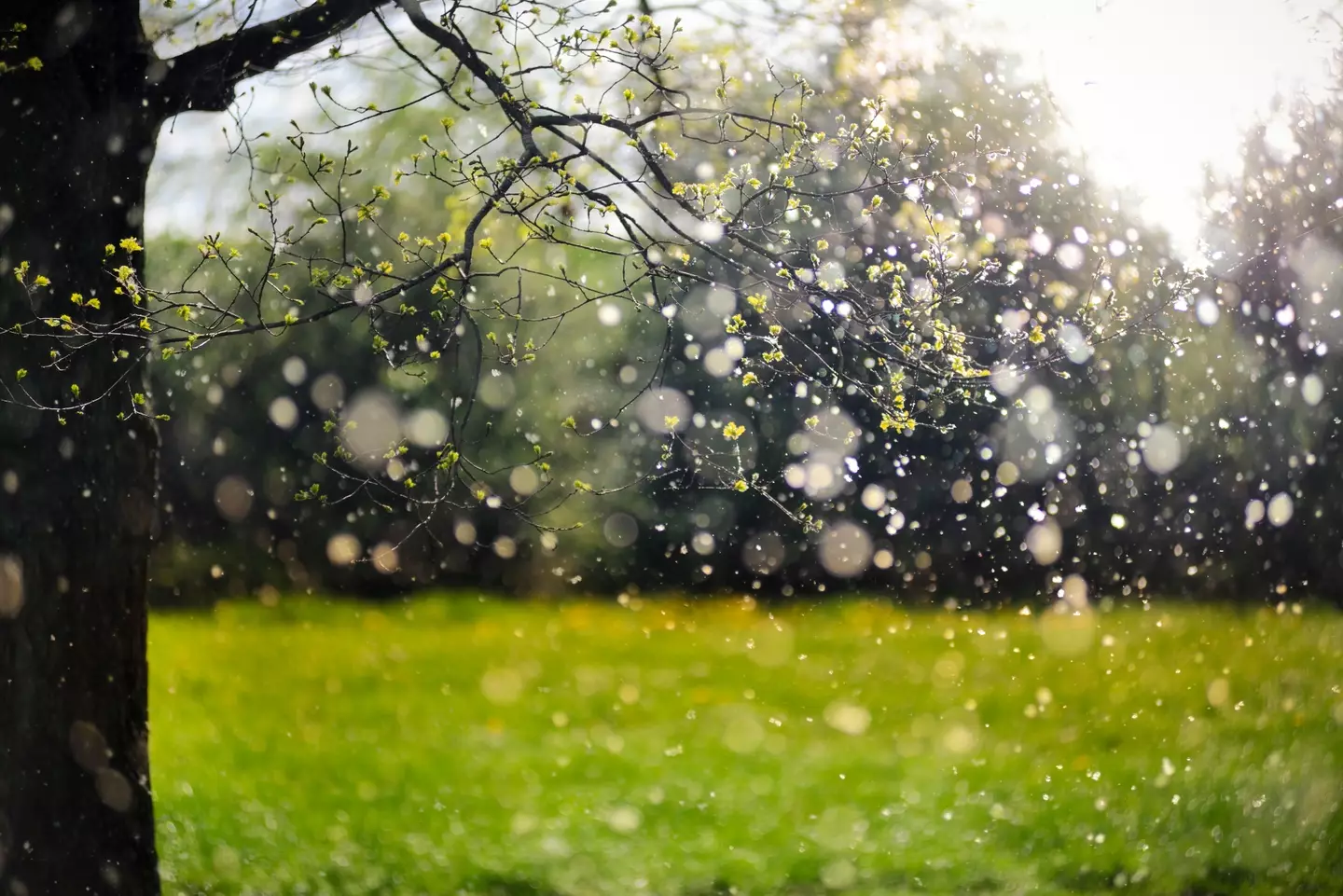
If you think your hay fever symptoms have cranked up a notch this year, you’re not wrong as experts have warned that pollen levels have risen and those who do suffer are more likely to feel the effects for longer.
Millions of people across the globe live with seasonal allergies, that brings with it a host of unpleasant symptoms such as runny nose, itchy, dry eyes and a sneezing.

Clifford Bassett, an allergy and infectious disease doctor, told Insider that the number of people who have hay fever has increased over the last few decades due to longer, warmer seasons and an increase in pollen counts.
Advert
Dr Clifford cited a study that found pollen levels have risen by around 20 percent in the past thirty years.
Another study found that pollen counts are projected to increase 200 percent by the end of this century.
Meanwhile, allergy season has increased by up to 20 days a year - so those who have hay fever are dealing with their symptoms for longer than before.
It's thought that the increase of carbon emissions, one of the leading causes of climate change, is behind the rise in pollen levels.
Advert
Plants use carbon dioxide to grow, so between warmer temps and higher levels of carbon dioxide, it’s thought plants are now throwing out more pollen.
Not only that but other airborne pollutants could be interacting with pollen, which may also make symptoms worse.
Alongside this, Dr Bassett told Insider that climate change has also kicked off an earlier start to allergy season.
Typically, plants and trees would produce pollen at different times of the year, but now many species of plants are producing pollen at the same time, which could make symptoms worse.

Although there is no cure for seasonal allergies, there are things you can do to help alleviate the symptoms such as taking antihistamines - you can check out Allergy UK for more information on living with hay fever.
Advert
Amena Warner, head of clinical services at the charity Allergy UK, told the Metro: “Living with allergies and maintaining a quality of life is not always easy. Enjoying everyday activities can become a real struggle.
“With the realities that warmer weather brings, it is crucial that allergy sufferers be given the advice, support and tools to manage their symptoms whilst staying active and healthy.”
If you have a story you want to tell, send it to UNILAD via [email protected]
Topics: Health
